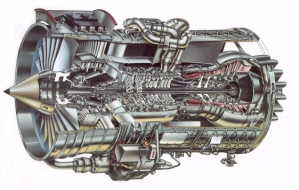Dr. Elisabeth Zuber-Knost
Press Officer
Kaiserstraße 12
76131 Karlsruhe
Tel.: +49 721/608-2089
Fax: +49 721/608-3658
As Professor Horst Hippler, President of the Universität Karlsruhe, pointed out, “You could not have chosen a better time for your visit to Karlsruhe and for the foundation of the Rolls-Royce University Technology Centre.” Today, 29 August, the fourth University Technology Centre (UTC) in Germany was opened at the University. The foundation of the Rolls-Royce UTC reflects the novel concept of innovation to be pursued in KIT, which envisages close cooperation with industry.
Further Information:
Monika Landgraf
Presse und Kommunikation
Universität Karlsruhe (TH)
Tel.: +49 721 608 8126
oder +49 721 608 2089
E-Mail
The foundation of the Rolls-Royce UTC in Karlsruhe puts a long tradition of research cooperation between the Universität Karlsruhe and Rolls-Royce in the area of turbomachine technology on a new footing. Specifically, the Karlsruhe UTC will occupy itself with the aspects of two-phase flow, combustion chamber and turbine cooling and the secondary air system. The aim is to improve the efficiency of aero engines and to reduce their emissions of pollutants. “Karlsruhe is our fourth UTC in Germany and number 29 in a hand-picked, globe-spanning network. It fills us with pride to be able to include world-leading universities in our network – and here, the Universität Karlsruhe is no exception,” said Ric Parker, Director Research and Technology, Rolls-Royce.
Although the research activities in the UTC will primarily concentrate on aviation, Rolls-Royce plans to apply the results to the fields of energy and ship technology as well. The primary research partner is the Institut für Thermische Strömungsmaschinen (ITS). Other institutes within the University and the Forschungszentrum Karlsruhe will also be involved. Professor Hans-Jörg Bauer of ITS will head up the Karlsruhe UTC. As he pointed out, “Research, teaching and innovation in the aero engine technology will benefit from this UTC, which will fit seamlessly into the strategy of the future Karlsruhe Institute of Technology.”
Under its concept of innovation, KIT will set new standards in collaboration with companies. Thus, for example, in the Karlsruhe UTC postgraduate students will be directly integrated into jointly and in some cases publicly funded research projects with Rolls-Royce – in line with the strengthening of the “knowledge triangle” of training, research and innovation which the research ministers of the EU member states emphasised in their framework resolution of June 2007. In addition, Rolls-Royce will fund one scientist from a Shared Research Group for a period of four years. These KIT research groups will each be funded 50:50 from the Future Concept element of the Excellence Initiative and from other resources, e.g. from industry.
The Rolls-Royce UTC will work in the area of energy conversion, one of the main focal points of the KIT Energy Centre, whose foundation is planned for 1 January 2008. Energy conversion is concerned amongst other things with processes and highly developed technical systems for the thermo-chemical conversion of fuels. Preliminary analysis suggests that different technologies developed in the field of turbomachines could also possess great potential for the helium cooling of thermonuclear reactors. In return, the research conducted in the Rolls-Royce UTC will benefit from KIT. One possible common interest is the activities of the Research Centre in the area of second-generation biofuels (Bioliq).
Integration of KIT into the global network of UTC partners will further strengthen the international nature of research and teaching in KIT. Thus, for example at today’s opening of the Karlsruhe UTC, cooperation agreements were signed with two English UTCs at the universities of Surrey and Nottingham.
The Karlsruhe Institute of Technology (KIT) is the merger of the Universität Karlsruhe and the Forschungszentrum Karlsruhe. Together, 8,000 people work here with an annual budget of €600 million. In KIT, the two partners will combine their scientific capabilities and capacities, establish the optimal structures for research, education and innovation and develop shared strategies and visions.
KIT will be an institution of internationally outstanding research and education in the natural and engineering sciences. It will serve as a magnet attracting the best heads from all over the world, set new benchmarks in education and the promotion of young people and be a leading European centre in the field of energy research. In the area of nanosciences, KIT intends to assume a world leading role. KIT’s goal is to become one of the most important corporation partners for industry.

